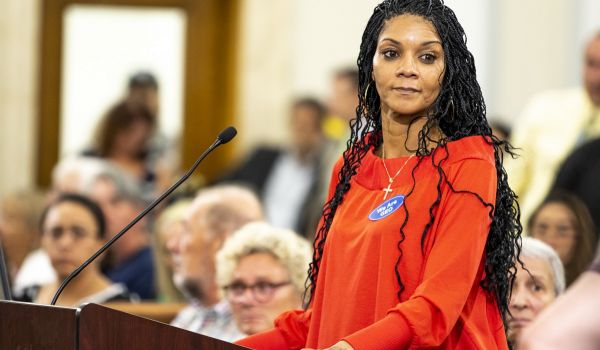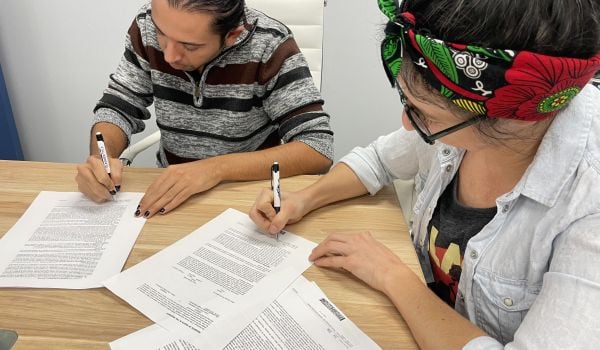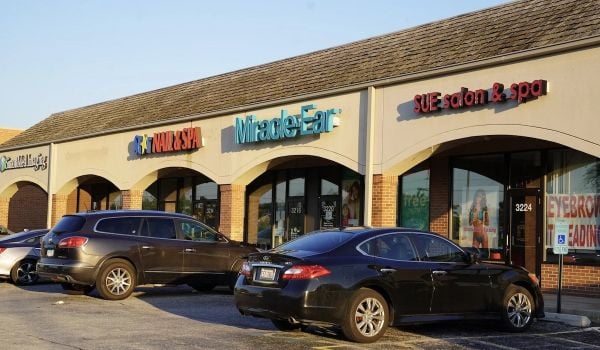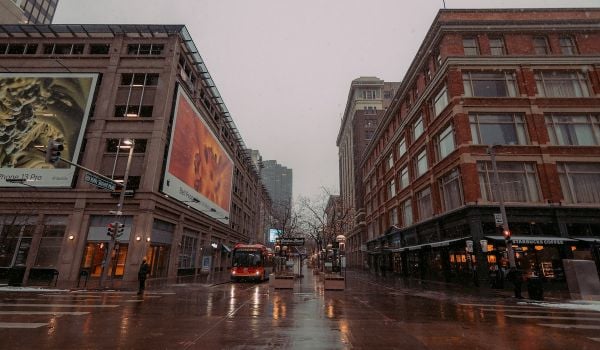Denver gained notice in the municipal funding world last month when a $12 million public offering of “mini-bonds” sold out in a single hour. The sale was supposed to run for five days. The $500 mini-bonds were tied to the $550 million municipal bond program called Better Denver.
Demand was so high and the cap was reached so quickly that afterward, 375 online orders had to be refunded.
“Denver residents — and these bonds were also open to all Colorado residents — really appreciated the opportunity to invest their money in good projects in their own community that they see everyday when they drive around town,” says Deputy Mayor Cary Kennedy, who is also the city’s chief financial officer.
Two types of $500 bonds were sold: A nine-year bond will mature 50 percent to $750, and a 14-year bond will mature 100 percent to $1,000. The money has been earmarked for recreational and cultural facilities, like the restoration of the McNichols Building, a historic building in Civic Center Park that will be re-opened as an event center.
Better Denver passed as a ballot initiative in 2007. That year the city sold $8 million in mini-bonds over the course of a week. Kennedy attributes the feverish excitement this year to the online ordering system: “Back [then], we didn’t have the online capacity. People had to visit the bank or mail in their orders. This time around people were sitting at home on their computers at 8 o’clock in the morning and those orders came in very quickly.”
Pat Sabol, a senior policy and research assistant at the Brookings Institute’s Metropolitan Policy Program, says that although Denver isn’t the first city to offer mini-bonds, the practice is still pretty rare. The Mile-High City’s recent success demonstrates that mini-bonds are ripe to be replicated elsewhere. “In the past, it was such a logistical nightmare,” he explains, “just tracking down each of these people and keeping track of them, but I think now that there’s more interest in people investing in their communities. There’s more awareness around infrastructure issues.
“In Denver,” he continues, “they’ve done a really good job of saying, ‘Hey, this is what this is going to fund. You can trust us. These are great projects we can really make happen.’ Places are a bit savvier about communicating their needs to their population.”
Sabol goes on to say that mini-bonds are “not necessarily the most efficient way to make money.” Traditional municipal bonds go for much higher (from $20,000 into the millions), and they are pretty low-risk investments for institutional investors. But there are advantages when a city offers mini-bonds to its residents, such as generating community enthusiasm about infrastructure improvements and also demonstrating to the market that there is demand.
“Right now, as an everyday person,” he says, “it’s pretty difficult to invest in my community besides me paying taxes or going out and doing a community garden. If I care about infrastructure, it’s pretty hard for me to invest in it. If you give people a safe path to do that, which Denver has done, you can go on their website and see how well they’ve done … this is really savvy urban planning and really good outreach and communications.”
Hyperlocal, crowdfunded investments are on the rise, with real estate opportunities like New York’s CityShares and Washington, D.C.‘s Fundrise appealing to the public’s attachment to place. Sabol distinguishes mini-bond programs from these by noting that the money is going toward things like road improvements and community centers — things that are “absolutely public-focused assets.”
Kennedy reiterates his point. “There’s a trend, here in Denver, but also nationally of people wanting to invest back in their communities,” she says. “That shows up in a lot of different forms, and this is one way for the people of Denver to invest locally, but I think it’s something we are going to see more of in the future.”
The Equity Factor is made possible with the support of the Surdna Foundation.

Alexis Stephens was Next City’s 2014-2015 equitable cities fellow. She’s written about housing, pop culture, global music subcultures, and more for publications like Shelterforce, Rolling Stone, SPIN, and MTV Iggy. She has a B.A. in urban studies from Barnard College and an M.S. in historic preservation from the University of Pennsylvania.

















